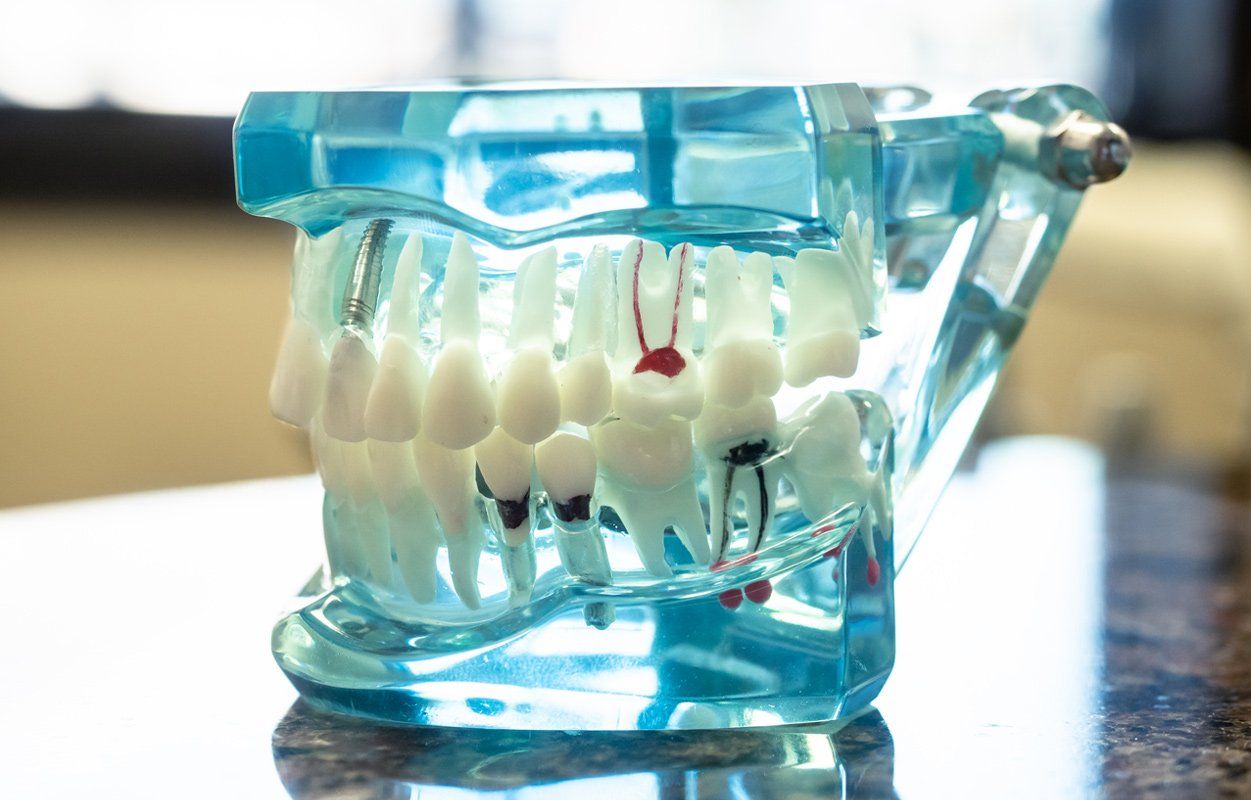Root Canal Therapy

Root canal therapy is a procedure that relieves pain by treating the unhealthy pulp of a tooth in order to both prevent the spread of current, and protect from future, infection. A tooth's pulp is made up of cellular entities, nerve tissues, and blood vessels which are found below the enamel of your teeth and spread from the crown to the bottom tip of the root.
If root canal therapy is the recommended treatment option for you, there is no need to worry because it is possible for your teeth to survive without the pulp, because the tissues around the tooth continue to nourish it. This particular therapy may be necessary if the pulp of your teeth is inflamed or infected, which could be caused by a crack in the tooth or possible problems with the crown. Failure to treat the infection or inflammation may result in extreme pain and discomfort.
Do Not Assume That You Do Not Need Root Canal Therapy Just Because You Do Not Experience Pain
We may recommend root canal therapy even for people that are not under any pain. We have advanced technology that can tell if the pulp of your tooth is infected or not. You may notice a 'pimple,' also known as a fistula, near your tooth, which probably contains pus from the infection. It may be the reason you do not feel pain, as it prevents the build-up of pressure on the tissue. Failure to address the issue immediately may cause the surrounding areas to become infected and root canal therapy may save your teeth and prevent the necessity of a tooth removal.
Procedure
First, we use a needle to thoroughly numb your tooth with anesthesia. It may be necessary to apply a dental dam to keep the area clean during the procedure. We will then use tools to access and open up the top part of the affected tooth, using files to get rid of the affected pulp, and reshaping the inner parts of the tooth. We then clean the area and apply a disinfecting solution to prevent any re-occurrence of the problem and to get rid of any remaining bacteria. After cleaning the inside of your tooth, we will fill it temporarily. Later, we will place a permanent crown on your tooth, at which point the treatment is considered complete.
Afterwards, we may prescribe a medicine if the area becomes inflamed after the treatment, because even though we remove the nerves of your tooth, your tooth might still be sensitive. We highly recommend that you practice good oral hygiene and take good care of your teeth and gums after the treatment. We also suggest that you schedule a follow-up appointment to ensure that your tooth is completely treated and that there are no more signs of infection.
What Our Patients Say
Book An Appointment
We look forward to seeing you soon!






